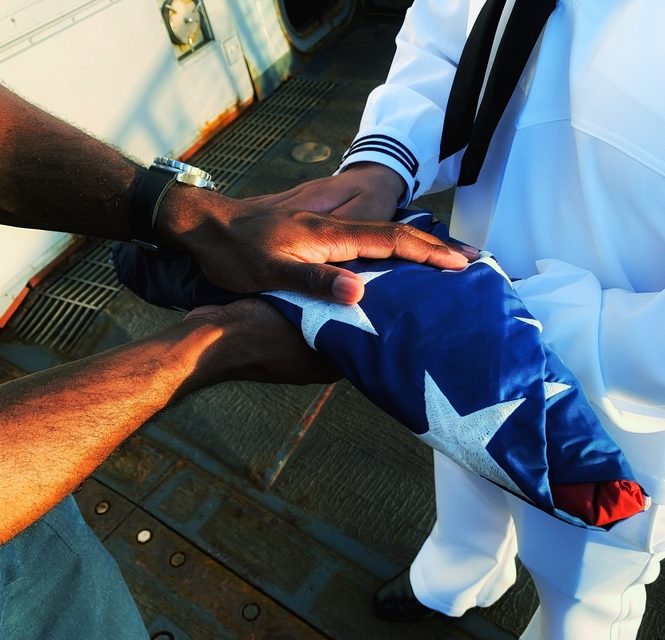Four years ago I enlisted in the U.S. Navy and it’s been, at the same time, the shortest and longest four years of my life. When people ask me “is the military worth it,” it’s never a simple question to answer. “Worth it” is a relative term that has different meanings to different people.
In order to accurately answer the question, I have the person asking it to first consider their values and the things in life that they care for most. Things like family time, personal autonomy, and just basic freedom — to do what you want, when you want — are not always guaranteed in the military and can be taken away at any time.
However, if you value a steady paycheck, traveling, meeting new people, free education, free health care, career development and all the other benefits that comes with military service, then yes, it may indeed be worth it.
The advantages of the military greatly outweigh the disadvantages for most people. I emphasize the term “most” because those individuals on the higher end of the socioeconomic scale probably have more to lose by joining the military than they have to gain. These are the sons and daughters of business executives, high-profile lawyers, medical professionals and the like. The military won’t be much value-added for them simply because the military offers nothing that they don’t already have. The average reader of this piece, however, does not fit into this category and for them, military service can pay major dividends.
I recommend military service to most people even being fully aware of the many systemic issues that still plague the services. From racism to sexual assault, the military has proven not to be immune from all the issues at large today. These problems are devastating for many people but also exist on college campuses, in churches, and in office spaces across the nation and the world — the military is just another stage where these heinous acts play out.
If one is thinking seriously about enlisting, the best course of action is to do as much research as possible on everything having to do with service and think critically on how it might impact you on a personal level.
For instance, Navy sailors have a very particular experience of military service compared to the other branches. Time out at sea, or underway as it’s called, can be brutal and draining — mentally and physically. Working hours are long, watch hours are longer, the food is bad, recreation is nonexistent on the smaller ships, personalities collide, and connection with the outside world is minimal at best. Applying and completing all the prerequisites to attend the University of Hawaiʻi was made 10-times harder because I was on deployment when I did so.
In addition, many sailors refer to ships as “floating high schools”, the constant drama validating this depiction. In a year some sailors spend 200+ days at sea. In four years I’ve done four deployments with shorter underway periods for training and qualifications in between. I’ve only had 3 opportunities to see my family. My duty station has changed twice. Although these events can be dissuading for many, it’s only half the picture.
Also in my four years I have established a tough, robust work ethic and a strong perseverance that I learned through the trails of military service. My heath care is free and available to me at any time for things that are emergencies, routine, or even cosmetic. My paycheck is substantial and allows me to live comfortably and sometimes lucratively in Hawaiʻi. I have a strong sense of community and belonging on my ship through the good times and emotional support through the bad. My classes at UH are paid for with no cost to me thanks to Tuition Assistance. My classes (and my housing) when I leave the service will be paid for for up to 36 months of schooling in addition to FAFSA, yellow ribbon, and other financial aid programs. I receive military discounts on car insurance, cell phone bills, even sneakers at Foot Locker. The Department of Veteran Affairs offer home loans at much better rates, as does Navy Federal Credit Union, Armed Forces Bank, and USAA. Colleges and universities worldwide offer affirmative action (even if they won’t admit it) for veterans and prioritize them over many other applicants.
Employers love hiring veterans, and the U.S. military is one big global fraternity/sorority with former service members working at all levels of government, politics, law, education, business, and trade fields.
The advantages of military service could truly fill a book but understand this: When duty calls there can be no backing down. If war breaks out there can be no turning back. Some people argue that the military budget is too large. What many of these people don’t realize is that a significant amount of that budget goes to personnel in the form of paychecks, allowances, aid, services and a myriad other programs for about 4 million soldiers, sailors, airmen and Marines.
Some may still argue that it is undeserved, but when you join the military, you take the oath to risk everything, including your life, to preserve the ideals and interests of the nation. This is the case for many service members who perished in action and never got to see their honorable discharge or post-9/11 GI bill. What’s so undeserving about that? So yes, the military is worth it for most, but I wouldn’t recommend joining solely for the benefits. Join only if you believe in what the country stands for because you will be conducting the business of the nation, whether you like it or not.






